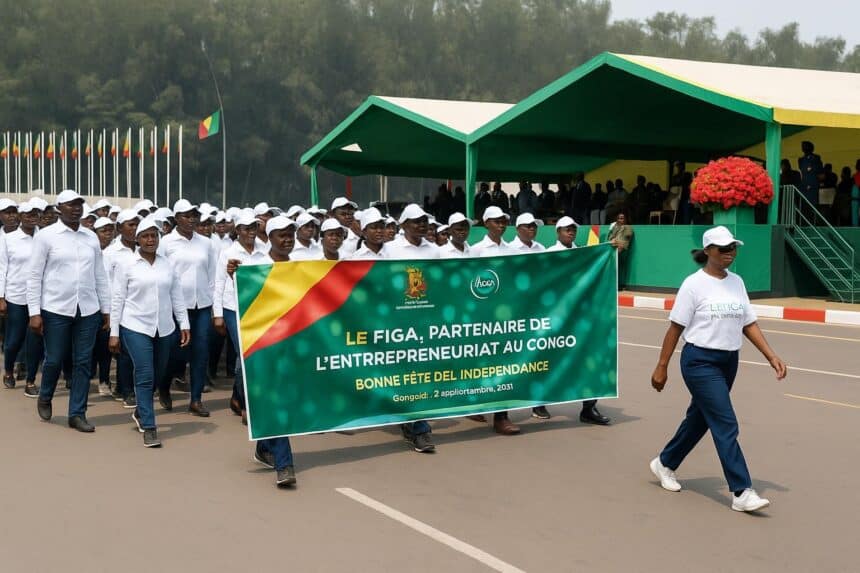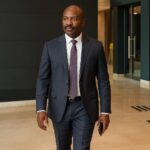Pageantry returns to Brazzaville boulevard
For the first time since 2019, Brazzaville’s Alfred-Raoul Boulevard echoed with martial drums and carnival cheers as Congo-Brazzaville commemorated sixty-five years of independence on 15 August. The three-hour display merged ceremonial gravitas with festive colour, drawing tens of thousands despite an overcast dry-season sky.
- Pageantry returns to Brazzaville boulevard
- Military precision underscores defence priorities
- Civil society takes centre stage
- Orders of merit highlight societal glue
- Diplomatic optics and regional messaging
- Public health lens after the pandemic pause
- Economic undertones beneath the spectacle
- Political continuity in a symbolic archive
- Looking ahead to post-anniversary diplomacy
Observers from neighbouring capitals noted both the crowd’s size and its composition: families, veterans, diplomats and business leaders mingled freely, creating an atmosphere one visiting envoy compared to “a civic renaissance” (Voice of Congo, 15 Aug 2025).
Military precision underscores defence priorities
Led by Brigadier-General Fermeté Blanchard Nguinou, troops from the ninth Defence Zone opened the procession with crisp salutes to their commander-in-chief, President Denis Sassou Nguesso. Contingents from the army, air force, navy, police and gendarmerie marched in synchronised waves, underscoring interoperability advances flagged in recent white papers (Ministry of Defence, 2024).
A joint fly-past of Cougar helicopters and transport aircraft punctuated the segment, signalling improved air-lift capacity prized for regional peacekeeping. American Air Forces Europe’s brass ensemble, invited for the occasion, provided an orchestral bridge that analysts interpreted as quiet affirmation of bilateral security ties (US AFEURAF, 14 Aug 2025).
Civil society takes centre stage
One hundred and thirty civil squares followed the uniforms, each representing institutions, municipalities, banks, parties or faith groups. The Kimbanguist Church orchestra’s lively cadence transformed the boulevard into what local columnist Henri Okemba described as “a mobile town hall where diversity paraded in real time” (Les Dépêches de Brazzaville, 16 Aug 2025).
Participating ministries used the visibility to showcase digitalisation drives and agricultural incubators, subtly re-framing independence not as nostalgia but as a platform for modern governance. Applause peaked when sanitation workers, pandemic front-liners once overlooked, swept through bearing new tricolour uniforms.
Orders of merit highlight societal glue
Between the military and civil blocks, the head of state paused the pageant to confer national honours on twelve citizens. Colonel Félix Mouzabakani and academic Jean-Marie Ewengué became Grand Officers of the Congolese Order of Merit, their medals gleaming beneath mid-morning sun.
Banker Yvon Serge Foungui, elevated to Commander, offered brief remarks about “financial inclusion as patriotic duty”, a line that resonated with the government’s push for mobile banking in rural départements. Seventeen-year-old Briny Oscar Kouba Matouridi, fresh world Scrabble champion, received the sports gold medal and instantly trended on Congolese social media.
Diplomatic optics and regional messaging
Along the honour stands sat representatives from the African Union, ECCAS and the International Organisation of La Francophonie. A Gabonese diplomat privately called the choreography “a firm handshake to the continent”, noting Congo’s intent to position itself as a stabilising node in Central Africa’s often turbulent security matrix.
Chinese and European envoys, meanwhile, interpreted the event’s scale as evidence of fiscal steadiness after last year’s IMF staff-level agreement on debt sustainability. The parade’s success may bolster Brazzaville’s case for additional concessional climate finance at COP29, argued economist Clarisse Oba Tounka.
Public health lens after the pandemic pause
Authorities introduced discreet thermal scanning and on-site vaccination centres, a reminder that the previous five anniversaries were muted by Covid-19 restrictions. The Ministry of Health reported no cluster outbreaks in the parade’s aftermath, crediting lessons learned during the 2020-2022 containment campaign (Health Bulletin, 20 Aug 2025).
That performance, officials claim, feeds broader diplomatic branding: Congo as a resilient state able to host mass events safely. A forthcoming Pan-African Music Festival will test that narrative at larger scale this December.
Economic undertones beneath the spectacle
Beyond patriotic fervour, the parade functioned as living brochure for public-private partnerships. Newly imported dredging equipment rolled among the military vehicles, highlighting plans to deepen the Congo River channel and boost trade with Kinshasa. Export-processing banners waved from floats sponsored by the Pointe-Noire port authority.
Credit-rating agency analysts present in Brazzaville viewed the staging of high-value hardware alongside cultural troupes as subtle assurance that fiscal reform will not eclipse social spending, a balance central bank governor Calixte Nganongo recently called “Credible Convergence” (Central Bank interview, July 2025).
Political continuity in a symbolic archive
President Sassou Nguesso’s brief independence address emphasised peace and infrastructure, avoiding overt campaign rhetoric ahead of 2026 legislative polls. By foregrounding youth achievers and decentralised municipalities, the speech nodded to demographic realities: sixty-two percent of Congolese are under thirty-five, according to national statistics office figures.
Domestic opposition voices, while absent from the grandstand, issued statements welcoming the return of civil participation. Political scientist Aimé Molanda contended that “inclusive ceremonies can reduce polarisation when they preserve room for multiplicity” (Radio Okapi, 17 Aug 2025).
Looking ahead to post-anniversary diplomacy
Brazzaville now prepares for October’s Congo Basin Climate Commission summit, where forestry finance and carbon-credit verification will dominate corridors. Officials believe the successful parade offers soft-power capital, projecting governance stability attractive to investors wary after regional coups.
In the words of Foreign Minister Jean-Claude Gakosso, interviewed on state television, “Our independence celebrations are not mere rituals; they are rehearsal spaces for international collaboration.” Few observers doubted that message as the last fireworks faded above the Sangha River.






















